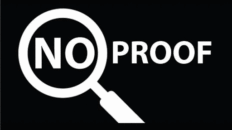By Hiran de Silva
There’s a growing question in the minds of many thoughtful LinkedIn contributors: what happens to reasoned dissent when it clashes with commercial promotion? Lately, I’ve observed an unsettling pattern — posts or comments offering well-argued, evidence-based counterpoints quietly vanish. No warning. No notification. Just gone.
The Vanishing Comments
This week alone, I’ve seen two such disappearances.
In one case, an entire post — one that had generated a flurry of insightful debate, thoughtful challenges, and educational disagreements — was deleted. The original post was then re-uploaded, this time stripped of all comments. A barren repost, leaving behind none of the collective intellectual richness that had previously been gathered.
In another, only my comment vanished. A comment that respectfully challenged a long-held industry myth, backed by experience and reasoning. No alert. No explanation. Just nuked.
Which raises the question: Is this the LinkedIn algorithm, or a deliberate act by the original poster?
Is LinkedIn Silencing Nuance?
A colleague cheekily asked if this is now a “LinkedIn feature.” His comment, though humorous, underscores a serious concern: Is the platform rewarding simplification and penalizing depth?
One might hope that an algorithm built for professionals would recognize the value of nuanced debate. After all, isn’t the goal of a professional network to enrich understanding and expose people to ideas beyond their own?
Apparently not — at least not always.
The Sales Motive Behind the Curtain
Let’s be frank: much of what we see on LinkedIn today is not written to enlighten, but to sell. Posts masquerade as conversation starters, but are in fact promotional devices. They invite engagement — until that engagement becomes inconvenient. Until someone points out that the emperor has no clothes.
In one recent example, a post oversimplified a complex topic to make it “accessible” to the target market. Comments began to fill in the missing pieces — valuable insights, context, objections, and counterexamples. Instead of embracing the growth of the discussion, the poster erased it all and reposted the same shallow argument, this time without interruption.
It seems the aim wasn’t truth, but traction.
The Analogy: Car or Sailing Boat?
Imagine someone asking, “Should you drive or sail to Oxford?” Most of us would reply: Well, that depends. Oxford is inland. You can’t sail there. But imagine if this absurd choice were posted on LinkedIn and defended with, “Well, sailing gives you fresh air, but cars have cup holders — so pick one!”
This, metaphorically, is what many sales-driven posts now resemble: a contrived, context-free comparison designed to funnel the audience toward a predetermined answer.
Any comment that dares to say, “Wait — the choice you’ve presented doesn’t even make sense,” gets quietly removed. Because acknowledging the flawed premise would derail the promotional arc.
The Ethical Dilemma: Debate or Delete?
This presents a genuine ethical dilemma.
If someone posts about a serious topic — budgeting systems, Excel capabilities, FP&A tools — but presents it in a one-sided or misleading way, should they be allowed to suppress corrections simply because they interfere with the sale?
Shouldn’t there be room for those who bring deep expertise, lived experience, and a desire to refine the truth — not for ego, but for the benefit of all?
And if their contributions are erased — obliterated, nuked, blitzed, jettisoned — what’s lost isn’t just one comment. What’s lost is the entire intellectual yield of a community engaging with nuance.
A Modest Proposal: Label Your Intentions
In the UK financial services industry, there once existed a clear distinction: if you were a salesman selling financial products, you had to give your customer a document that disclosed this. Alternatively, if you were an independent adviser comparing options, that too had to be made explicit.
Could LinkedIn benefit from a similar convention?
What if posts came with a label:
- “Sales Post – Do Not Contradict”: A promotional post where the poster is not inviting debate but seeking traction, leads, and clicks.
- “Open Debate Welcome”: A genuine invitation to explore a complex topic, where all reasoned contributions are welcome, even dissenting ones.
It would save many of us from wasting time crafting thoughtful responses that will be vaporized for being inconvenient.
The Deeper Danger: The Death of Intellectual Honesty
Let’s be clear: this is not just about hurt feelings or social media etiquette. This is about a shift in the professional culture where intellectual honesty is being sacrificed for branding and sales.
We are being asked to “engage” — but only if we agree.
We are being asked to “contribute” — but only if it supports the narrative.
We are being asked to “comment” — but only if it’s praise.
Anything else risks disappearing in a puff of smoke, as if it never existed.
The Case of VBA and the ‘Outlier’
A final example: when Paul Barnhurst posted “Will VBA die?”, the comments mostly agreed with him. I offered a counterpoint, including a detailed real-world VBA model that solves an actual FP&A need — one that the suggested “alternatives” don’t address.
There was no reply. No engagement. Not even a rebuttal.
Just silence.
My comment stood out as an “exception,” but — and this is critical — what if that “exception” is actually the core of the issue? What if the outlier is the reality, and the popular view is the illusion?
Final Thought
If we are going to elevate our collective understanding, we must welcome reasoned dissent, not delete it.
And if we can’t distinguish between a debate and a sales pitch, we are not networking — we are being manipulated.
So next time you see a post and want to contribute meaningfully, pause and ask:
Am I walking into a discussion — or a commercial?
And if the latter, perhaps LinkedIn should help us all out with a little label:
⚠️ Caution: Promotion Zone. Independent thought not welcome.
—
Let’s keep the lights on. Let’s keep the debates alive.






Add comment